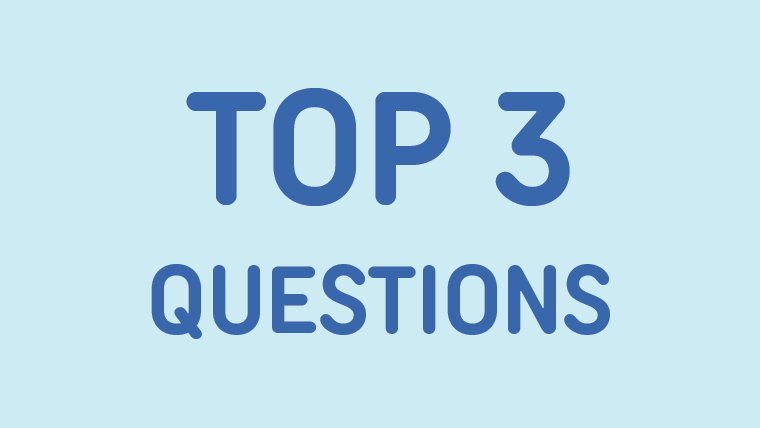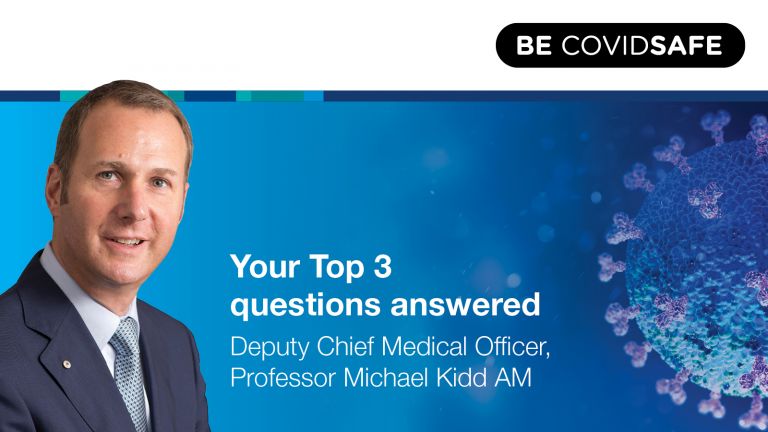
Hello. My name is Michael Kidd, I'm the Deputy Chief Medical Officer here at the Australian Government Department of Health. Joining me today is my friend Linda, who is signing Auslan for our viewers who are deaf and hard of hearing. Thank you, Linda. So my shout out today is to everybody involved in our national COVID-19 vaccination rollout program. We have reached a really important milestone today, with over 20 million doses of COVID-19 vaccines administered to people right across Australia. And I want to say a huge thanks to everybody who is involved in this vaccine program, to the many nurses, doctors, many other people involved in delivering the vaccines, the people who are making sure that the vaccines are being shipped around the country, the people driving the trucks, everybody involved in this very major logistic exercise of getting our nation vaccinated and protected against COVID-19. Thank you to you all.
Our first question today is around what is myocarditis or pericarditis and is it safe for my teenage children to receive the Pfizer vaccine?
You may have heard in the media about myocarditis or pericarditis, this is a very rare side effect which can sometimes occur following people receiving the Pfizer vaccine. Myocarditis is inflammation of the heart muscle, pericarditis is inflammation of the tissue surrounding the heart. And if you get either of these conditions, you may get symptoms of chest pain, shortness of breath, or palpitations, feeling your heart racing. If you do get these symptoms it is very important to seek urgent medical advice, so that it can be either confirmed that you have this related to the vaccine, or it may be due to some other underlying medical condition. The good news is that most cases of myocarditis or pericarditis which have been diagnosed around the world following the Pfizer vaccine are mild and self-limiting. The vast majority of people recover very quickly from these symptoms with no ill effects. So it does reinforce the importance, though, of vaccination. We do see more cases of myocarditis in young men, particularly under the age of 30, and there have been some cases among teenage people around the world as well. But what we also know is that this condition can also be caused by COVID-19, and it is actually far more likely that you may get this condition if you are infected with COVID-19 than from the vaccine. So it reinforces the importance of our vaccine program protecting everybody in Australia.
Our second question is why isn't the Pfizer vaccine available to everybody in Australia?
So as you are no doubt aware, the Australian Technical Advisory Group on Immunisation, ATAGI, has provided recommendations to the Australian government about the preferred vaccine for people of different ages. The preferred vaccine for people aged 60 years and above remains the AstraZeneca vaccine and we have seen very high uptake of people aged 60 and above, in fact we have more than 87 percent of people in Australia aged over 70 who have received at least a first dose of a COVID-19 vaccine, usually the AstraZeneca vaccine. The Pfizer vaccine is the preferred vaccine for those aged between 12 and 59 years of age. We have opened up on Monday this week access to the Pfizer vaccine for all young adults between the age of 16 and 39. Indeed in some states and territories, young people already had access to the Pfizer vaccine. And from 13 September we will be opening up access to the Pfizer vaccine for children aged between 12 and 15 years. And at the moment children aged between 12 and 15 can receive the Pfizer vaccine if they are Aboriginal or Torres Strait Islander children, if they have a chronic health condition that puts them at increased risk of COVID-19, if they are a participant in the National Disability Insurance Scheme, the NDIS, or if they live in remote communities where we are vaccinating everyone in the community on the same day. So that is where we sit at the moment with the different groups of people receiving the vaccines by age group. The most important thing, though, please get vaccinated. Please join the many millions of Australians who are now fully protected against serious illness or death from COVID-19.
Your third question today is about people finding the restrictions and the lockdowns are having a serious impact on their mental health.
This is obviously very concerning and also it is normal to be feeling down, when you find yourself yet again, in many cases, in lockdown or with restrictions on your life and not being able to cross borders, not being able to be with loved ones, not being able to celebrate special events, having your business and your livelihood impacted by the lockdowns which have been in place. For young people, not being able to attend school, and be with your friends and continue your education. There are many people feeling not themselves at the moment right around Australia. So what can you do to boost your own mental health and well being and that of your loved ones, your family and your friends? Firstly, it is really important to have a good diet, to do some exercise every day and to have a good sleep pattern, and these are all things that all of us should be doing all the time. And avoid some of the things which cause problems to our mental health, things which actually we might try to do to cope but which actually do not help so much, such as smoking too much, drinking too much or the use of other drugs. It can be really important to reach out to other people, especially if you are feeling isolated, as so many people are who are living under lockdown conditions at the moment. Reach out to family members, reach out to friends, talk about how you are feeling and ask them how they are feeling as well. Try to do something every day which makes you feel happy, something which makes you feel good. It may be taking a break, going outside, doing some exercise, breathing in the fresh air, enjoying the spring flowers or the spring weather right across Australia. It might be reaching out to that special person in your life and talking to them as well. One of the things which can actually make you feel better is actually helping someone else, so reaching out to another person who you know is isolated and finding out how they are doing and offering your support, also can also make you feel a little better as well. Some people, though, are experiencing significant mental health challenges at this time, and if you find that you are feeling excessively anxious or if you're feeling depressed, losing interest in normal activities in life, having trouble sleeping, losing your appetite, if this is happening to you, please reach out for support. You can go to the Australian Government website, Head to Health, and we have resources available to support your mental health. You can pick up the phone and ring Beyond Blue or Lifeline or one of the other online counselling services and talk to someone on the other end of the phone about how you are feeling. Or if you are feeling particularly depressed or anxious, please reach out to your trusted health professional. To your general practitioner or other health professional, and of course if you're in lockdown, you can do this using telehealth, either by telephone or by video call with your trusted GP or other healthcare professional. None of us need to feel that we are alone during this time. This is a time of great disruption in all of our lives. So please, if you are feeling that your mental health is being impacted, please reach out for support.
And that is our Top Three for today. Thank you everybody, and thank you to, Linda.







